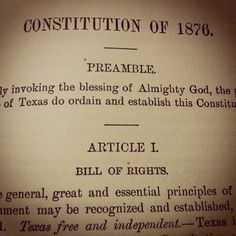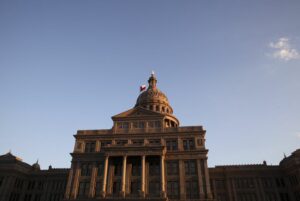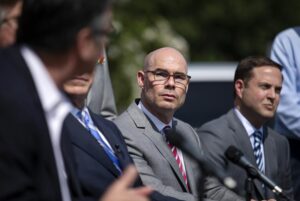Texans well might awaken Wednesday morning living in a state governed by a constitution that was amended 17 times at the ballot box the previous day.
Yep, the Texas Constitution could have 17 more amendments tacked onto it, making it a governing document that has been changed, well, countless times. The Legislature calls this “the will of the people at work.” I call it something different. It is government by ignorance and apathy … meaning that most Texans don’t care about the amendments they’re voting on and have no intention of learning about them.
This is a lousy way to run a state government.
I have written about this before, back when I was working for a living writing opinion pieces for the Beaumont Enterprise and the Amarillo Globe-News. I have called for a constitutional convention in Austin to change the manner in which we amend our state constitution.
We’ve tried this before. The Legislature convened a convention in the 1970s to change our system of constitutional government. The effort fell short.
The constitutional amendment process of governing occurs every legislative year, meaning every odd-numbered year when the Legislature meets ostensibly for 140 days in Austin. Issues they cannot resolve are sent to the ballot in the fall. This year we got 17 proposed amendments.
It sorta reminds me of the number of counties Texas has on the books. Not a chance of reducing the number of counties, as it would reduce the number of elected officials who set policy. I have to remind myself that the smallest of counties enjoys a seat at the power table in Texas. Those who created the state in 1845 wanted to diffuse as much power as possible from Austin. Which also explains the enormous number of counties scattered throughout the state. We’ve got 254 of them, some with tiny populations, such as Loving and Roberts counties, both of which are home to more livestock than human beings.
The federal way of governing is preferable to me. Yeah, I know what you’re thinking. Except for right now when we have nimrods shutting down the government because compromise isn’t in their legislative DNA.
I don’t expect the state to convene a constitutional convention anytime soon … if ever. I just felt like venting because the founders who created the national constitution gave me the right to seek “a redress of grievances.”







